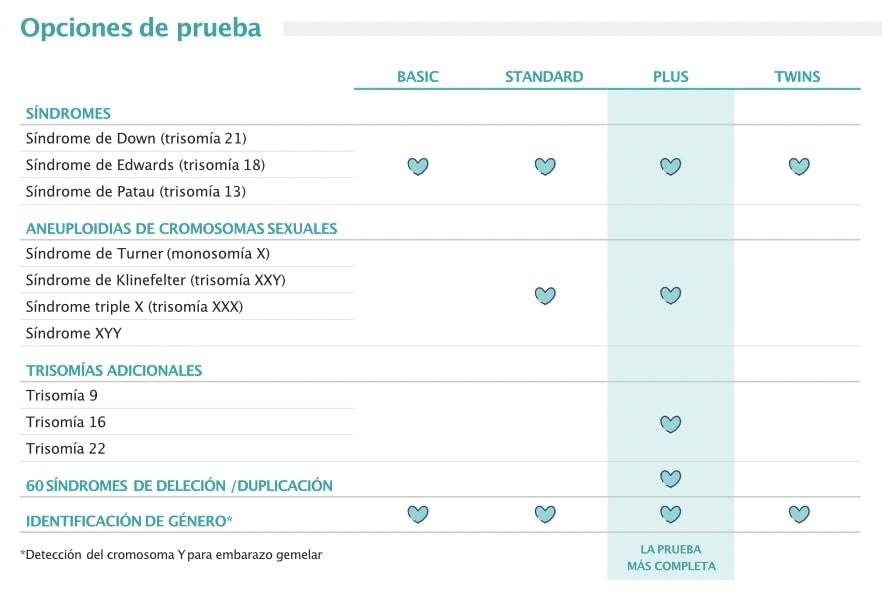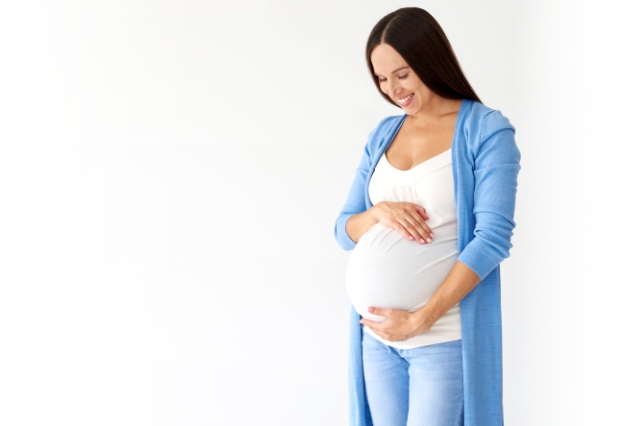Description
About Non-Invasive Prenatal Testing (NIPT)

NIPT is the most advanced, complete and accurate Non-Invasive Prenatal Test (NIPT) for the detection of chromosomal abnormalities, which will allow you to obtain information about your pregnancy without putting your baby’s health at risk.
- NIPT can detect trisomies 21, 18 and 13 with a sensitivity and specificity higher than 99%, reducing the need for invasive prenatal tests such as amniocentesis.
- It also provides other detection options: for sex chromosome number alterations, other trisomies (9, 16, 22), and 60 deletion / duplication syndromes.
- The NIPT test can be performed from week 10 of pregnancy.
- NIPT is also suitable for twin pregnancies, in vitro fertilization (IVF) and pregnancies from egg donor.
- If you wish, NIPT can also provide information about the baby’s gender.
- Results will be ready in 6-10 days
NIPT is the most comprehensive prenatal test, with the largest panel of abnormalities
At MyAdnLab, the price of a non-invasive prenatal test is:
Basic: € 430
Twins: € 500
Standard: € 500
Plus: € 850
Non-Invasive Prenatal Testing (NIPT) Options
- Basic: Trisomies 21, 18, 13 + fetal sex
- Twins: Trisomies 21, 18, 13 + fetal sex (for twins pregnancy)
- Standard:Trisomies 21, 18, 13 + aneuploidies X and Y + fetal sex
- Plus: Trisomies 21, 18, 13, 9, 16, 22 + X and Y aneuploidies + panel 60 microdeletions + incidental findings in all chromosomes + fetal sex
Some pregnant women have a higher risk of transmitting genetic diseases, and doing the Non-Invasive Prenatal Test (NIPT) is especially recommended in these cases:
- There is a personal or family history of chromosomal abnormalities.
- The woman is 35 years old or older.
- Findings on fetal ultrasound, serum screening results, or nuchal translucency test results indicate an increased risk of aneuploidy
THE NIPT TEST IS AVAILABLE TO ANY WOMAN WHO REQUESTS IT, REGARDLESS OF AGE OR PREDETERMINED GENETIC RISK.
- TRISOMIES A trisomy is an alteration in the number of chromosomes, where three chromosomes are present instead of the usual pair. Trisomy 21 (Down syndrome), Trisomy 18 (Edwards syndrome), and Trisomy 13 (Patau syndrome) are the most common trisomies in live births. These chromosomal abnormalities are caused by the presence of an extra copy or a partial copy of chromosome 21, 18, or 13. This extra genetic material can cause dysmorphic characteristics, birth defects, and varying degrees of intellectual disability. The NIPT test can detect the risk that the fetus has trisomies 21, 18, 13 and additionally trisomies 9, 19 and 22 in the Plus option.
- ANEUPLOIDIES OF THE SEX CHROMOSOMES An aneuploidy of the sex chromosomes is an alteration in the number of X or Y chromosomes; either an additional copy or the absence of one of these chromosomes. Although sex chromosome aneuploidies are generally mild, physical abnormalities, learning disabilities, and infertility may occur in some cases. The NIPT test can detect XXY (Klinefelter Syndrome), XXX (Triple X Syndrome), XYY (Jacob Syndrome) and Monosomy X (Turner Syndrome) sexual aneuploidies, in Standard and Plus options.
- DELETION / DUPLICATION SYNDROMES Deletion and duplication syndromes are abnormalities in which a small deletion or duplication of a chromosomal fragment occurs. The size and position of the deletion / duplication determine what clinical features are present and how severe they are. The clinical features of deletions / duplications can include developmental delays and intellectual disability, growth and behavior problems, feeding difficulties, low muscle tone, seizures, and various malformations. The Plus test option is capable of detecting 60 deletion / duplication syndromes and, upon request, other incidental findings.
- FETAL SEX: The NIPT test determines the presence of the Y chromosome and allows to know the gender of the baby in the case of a single pregnancy. In twin pregnancy, the NIPT test can determine if at least one of the babies is male. Fetal sex determination is available for Basic, Standard, Twins and Plus options
Chromosome fragments circulate in the mother’s blood, both from the mother and the baby. In the maternal blood sample, free fetal DNA fragments are isolated and analyzed using whole genome parallel mass sequencing (NGS) technology. NIPT uses a unique sequencing technology that avoids errors, and is able to detect other incidental findings that are not found in the panel (in the plus test)
- The NIPT test is suitable for any woman who wishes to have a smooth pregnancy – regardless of age or predetermined genetic risk.
- State-of-the-art genetic screening. Its technology allows a 99% detection rate for the most common trisomies.
- NIPT is a non-invasive test that can be performed from week 10 of pregnancy. Only requires a small blood sample from the arm
- Samples are analyzed in Europe, ensuring the highest level of quality in results and data security
- NIPT is the world’s leading non-invasive prenatal test.
- Compared to invasive methods such as amniocentesis or chorionic biopsy, the NIPT test does not pose a risk of pregnancy loss.





